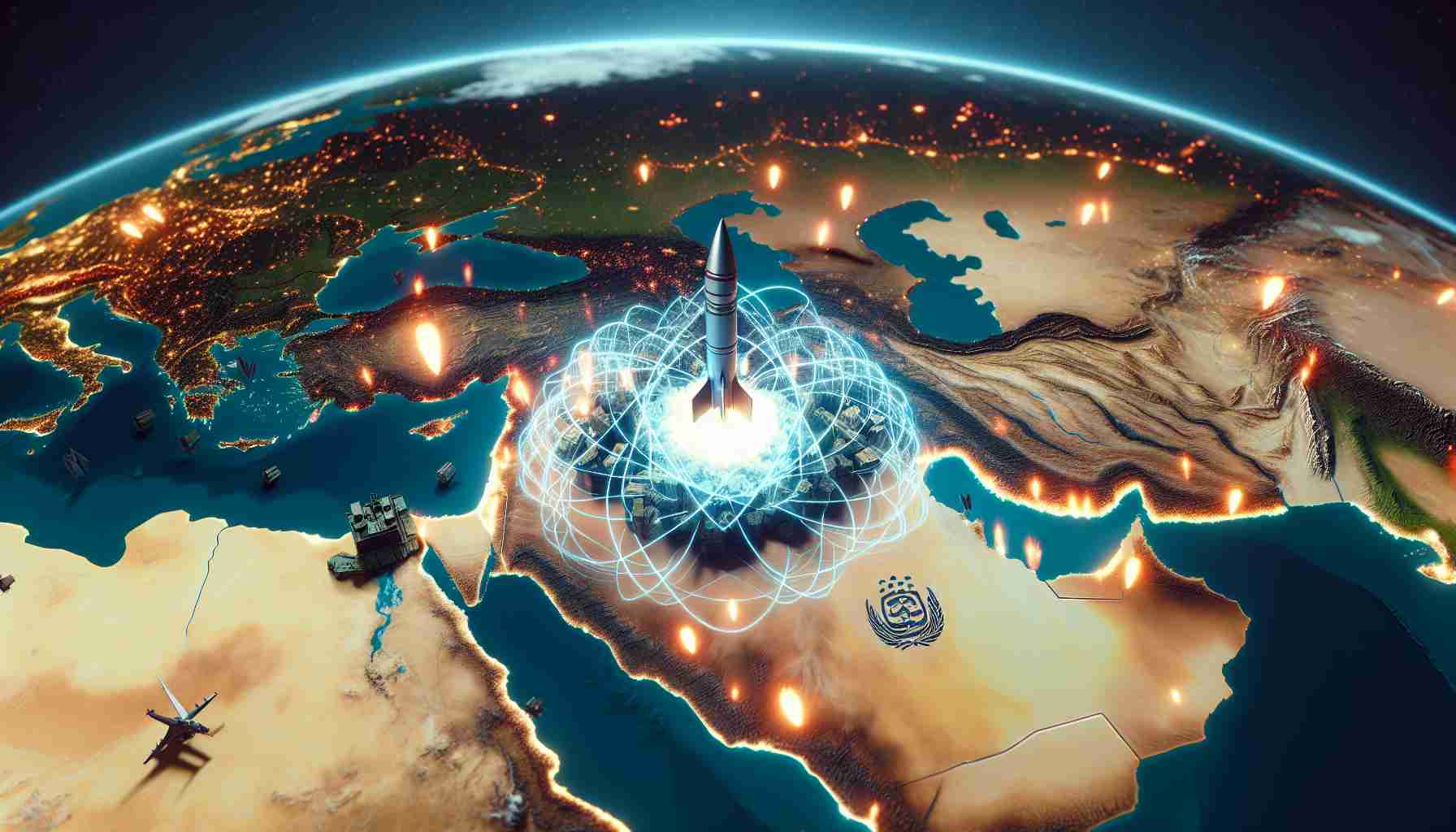In a bold move that escalates tensions in the Middle East, Israel has reportedly dismantled three of Iran’s Russian-made S-300 missile defense systems. This decisive strike, carried out on October 26, is part of Israel’s operation “Days of Repentance,” targeting vital military infrastructure within Iran. This strategic offensive followed an earlier missile attack on Israel from Tehran that left significant tensions brewing between the two nations.
The airstrike, known to have been pre-approved by the Biden administration, was aimed at crippling Iran’s ability to launch future ballistic missile attacks against Israel. Since the start of the year, Iran had only four S-300 systems. An earlier strike in April had already taken out one, and this recent operation reduced Iran’s missile defense considerably.
Israeli defense forces focused not only on the S-300 systems but also on radar installations critical for guiding ballistic missiles. Their removal effectively hampers Iran’s capacity to launch such missiles in future confrontations.
Israel Defense Forces Chief, LTG Herzi Halevi, underscored Israel’s readiness to counter threats, asserting their ability to strike “any threat, anywhere, at any time.” This operation serves as both a clear warning to Iran and a demonstration of Israel’s military capabilities.
With Iran’s defenses significantly weakened, Defense Secretary Lloyd Austin has called on Iran to de-escalate and resist retaliation. The U.S. Department of Defense emphasized that Israel’s actions were retaliatory, aimed specifically at military sites, in response to Iran’s earlier aggression against civilian population centers.
The Hidden Impacts of Recent Middle East Tensions: What’s Really at Stake?
The dismantling of Iran’s Russian-made S-300 missile defense systems by Israel marks another escalation in Middle Eastern tensions, but the implications of this operation extend far beyond military tactics. This move transforms not only the strategic landscape but also deeply affects political dynamics and civilian life across the region. Let’s unpack how these developments influence the lives of people, communities, and even entire countries.
Economic Ramifications: Regional and Global
Iran’s reduced missile defense capacity could lead to increased vulnerability, triggering unease in the global oil market. Historically, tensions in the Middle East have led to fluctuations in oil prices, affecting global economies. Countries heavily dependent on oil imports may face economic challenges as the risk of supply disruptions heightens. The increased tension could also lead to higher defense budgets in neighboring countries, diverting resources from other crucial sectors such as healthcare and education.
Political Fallout: Power Balance Shifts
The geopolitical landscape is significantly affected by these developments. Iran’s diminished defense might embolden its regional rivals, potentially leading to power shifts within the Middle East. This could impact alliances and diplomatic relations, both regionally and globally. Countries like Saudi Arabia and the UAE might see this as an opportunity to assert more influence, while traditional allies of Iran may need to reassess their strategic positions and relationships.
Humanitarian Concerns: The Human Cost
With military infrastructures being targeted, there are always concerns about civilian casualties and displacements. While the strikes aimed at military sites, the ripple effect could lead to increased militarization and insecurity, affecting everyday life. The threat of potential retaliatory measures from Iran might prompt evacuations or increased security measures, disrupting daily life and affecting the mental health and well-being of civilians, particularly those living close to conflict zones.
International Controversies: A Divided World
International opinions on such military operations are divided. Some countries view them as necessary measures for self-defense, while others see them as acts of aggression that exacerbate instability. This division can lead to diplomatic standoffs in international forums like the United Nations, where debates over sovereignty, intervention, and national security take center stage.
Environmental Impact: A Silent Victim
One often overlooked aspect of military conflict is its impact on the environment. Airstrikes can lead to oil spills, forest fires, and other forms of ecological damage. In a region already facing significant environmental challenges, such repercussions could further strain resources and lead to long-term ecological decline, affecting biodiversity and human health.
Advantages and Disadvantages of the Recent Actions
Advantages:
– Demonstrates a nation’s military capability and readiness.
– Could potentially deter future aggression if perceived as effective.
– Strengthens ties with supportive international allies.
Disadvantages:
– Increases regional instability and security concerns.
– Risk of civilian casualties and a humanitarian crisis.
– Economic repercussions due to increased oil market volatility.
Critical Question: Is There a Path to De-escalation?
With escalating tensions, the natural inquiry is whether peace is achievable. What diplomatic measures can be taken to prevent further conflict and promote stability? History has shown that negotiations, while challenging, remain a viable path to reduce hostilities. It is crucial for regional powers and international bodies to engage in dialogue and mediation efforts to mitigate the risk of further escalation.
For more information on Middle Eastern geopolitics and global diplomatic efforts, visit resources such as [BBC News](https://www.bbc.com) or [Al Jazeera](https://www.aljazeera.com).







